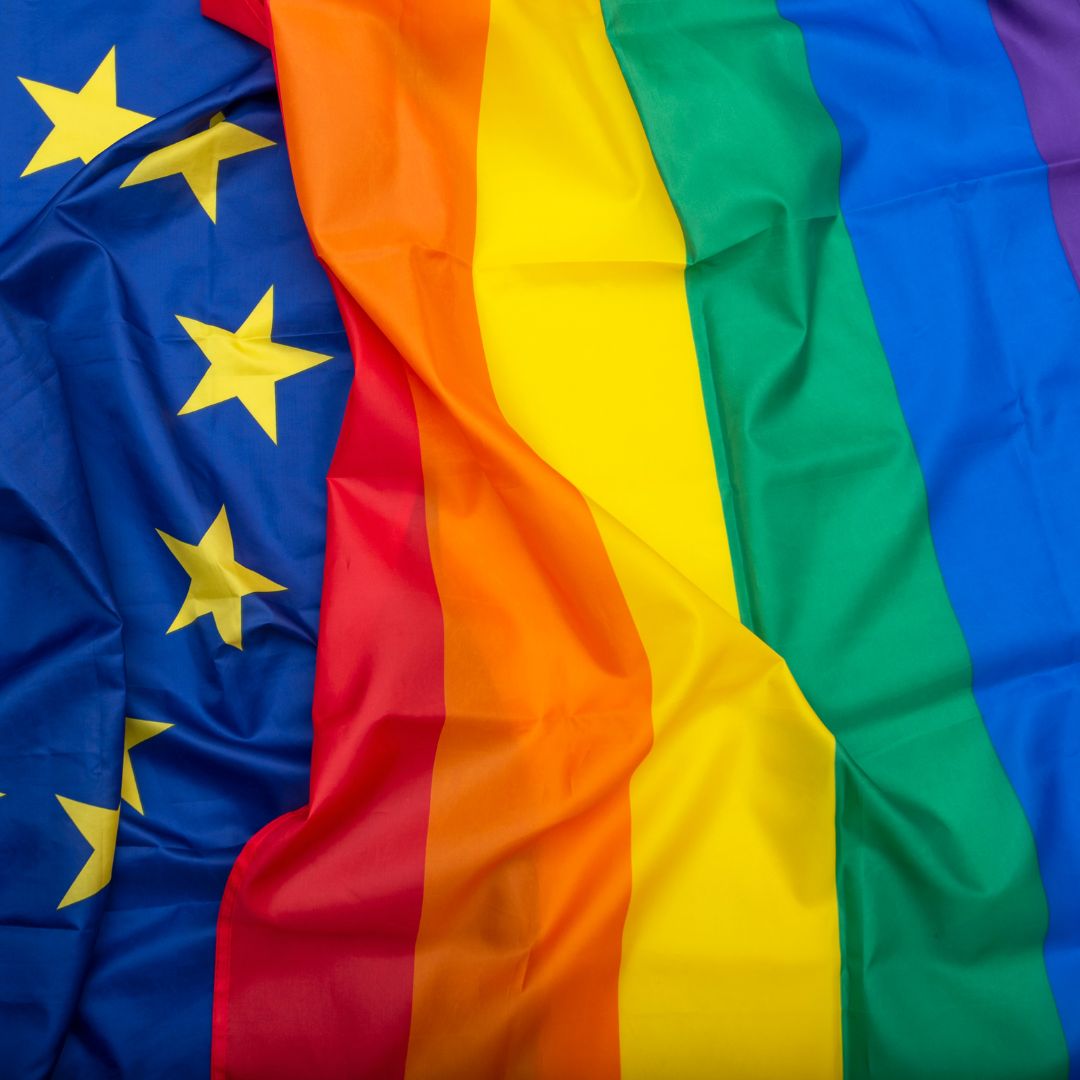EU Election results: The challenges & opportunities

Today we dive into the mixed results of the European Elections, the shift to the far right in national elections, and the potential impact of it all on LGBTI human rights in the EU and beyond.
This blog is based on a conversation between our Advocacy Director, Katrin Hugendubel, co-chairs of the LGBTI Intergroup at the European Parliament, Marc Angel and Kim van Sparrentak, and activists Luca Dudits from Hungary and Roberto Muzzetta from Italy for a special Frontline podcast episode.
The results of the recent European Elections, which weren’t the radical shift to the far-right that was being predicted, revealed a mixed picture for LGBTI rights advocates. Marc Angel and Kim van Sparrentak expressed cautious optimism. While their personal victories and the re-election of LGBTI allies in their respective countries gave them cause for celebration, the broader rise of the far right across Europe remains a significant concern. Both stressed the need for strong collaboration with civil society and activists to counteract this trend and protect human rights.
Turning points in Hungary and Italy?
In Hungary, the challenged to Viktor Orbán’s government by Péter Magyar — a former ruling party insider-turned-rival — and his Tisza party marked a significant development. Magyar secured a substantial portion of seats, indicating a shift in the political dynamics that could open new avenues for advancing LGBTI rights. Luca Dudits from Hatter Society described the election as one of the most exciting campaigns in recent history, reflecting a growing political engagement among those opposed to Orban’s policies. However, she was cautious in her assessment of Magyar, who failed to mention LGBTI human rights in his campaign and made broad references to tackling propaganda. Whether this is the anti-LGBTI propaganda spread by Orbán or percieved ‘LGBTI propaganda’ remains to be seen. Dudits said that activists in Hungary will be engaged over the coming months in seeking to make contact with Magyar and his party to ascertain their commitment.
Italy also witnessed a blend of hope and caution. Roberto Muzzetta from Arcigay noted the substantial effort put into mobilising the LGBTI community by Italian activists, resulting in a greater presence of LGBTI allies in the European Parliament. Despite this, the far-right influence remains strong, particularly with Giorgia Meloni’s continued dominance. However, according to Muzzetta, the rise of progressive voices provides a counterbalance that could influence future policies and elections.
Challenges from the far-right surge
The election results across Europe show a worrying trend: the significant gains made by far-right parties. This shift is not only visible at the EU level but is also permeating national politics in countries like France, Germany, Austria, and the Netherlands. Such a trend poses direct threats to the advancement of human rights, particularly for the LGBTI community.
Kim van Sparrentak and Marc Angel, re-elected MEPs and co-chairs of the LGBTI Intergroup, expressed their concerns about this political shift. They emphasised the need for strong collaboration with civil society and activists to counteract the far-right rhetoric. They highlighted the importance of building majorities with allies who support human rights and resist anti-gender rhetoric, warning against the potential realignment within the European People’s Party (EPP) that could jeopardise LGBTI rights.
Strategic responses and solidarity
A strategic and united response to the rise of far-right politics is crucial. Marc Angel stressed that the EPP must avoid collaboration with far-right populists to maintain the integrity of the European Parliament’s commitment to fundamental rights and the rule of law. He called for the parliament to remain a strong advocate for democracy, particularly given the anticipated conservative shift within the European Commission.
Civil society and grassroots activism were identified as crucial elements in this struggle. The tireless work of activists on the ground, often in hostile environments, provides the backbone for advancing LGBTI rights. Kim van Sparrentak underscored the importance of maintaining strong networks within the European Parliament and across member states to support these activists.
Roberto Muzzetta emphasised the importance of consistent and balanced human rights advocacy by European institutions. He called for careful language use by politicians to avoid further polarisation and to support inclusive discourse on LGBTI issues.
Looking forward with hope
Despite the challenges, the resilience and determination of activists and supportive politicians offer some hope. Both Marc Angel and Kim van Sparrentak are committed to fostering a strong LGBTI intergroup in the European Parliament and working closely with activists to continue the fight for equality. They stressed the importance of mobilising the silent majority to stand against far-right rhetoric and support inclusive policies.
Luca Dudits and Roberto Muzzetta echoed these sentiments, highlighting the value of international solidarity and learning from each other’s experiences. They stressed the need for continued support from European institutions and the importance of framing LGBTI rights in terms that resonate with broader values like safety, love, and freedom.
The political landscape in Europe is rapidly evolving, presenting both opportunities and challenges for the LGBTI community. While the rise of the far-right is concerning, the solidarity and strategic efforts of activists and supportive politicians provide a pathway forward. By continuing to build alliances, advocating for inclusive policies, and mobilising broader support, there is hope for advancing LGBTI rights across Europe.
Listen to the podcast here.